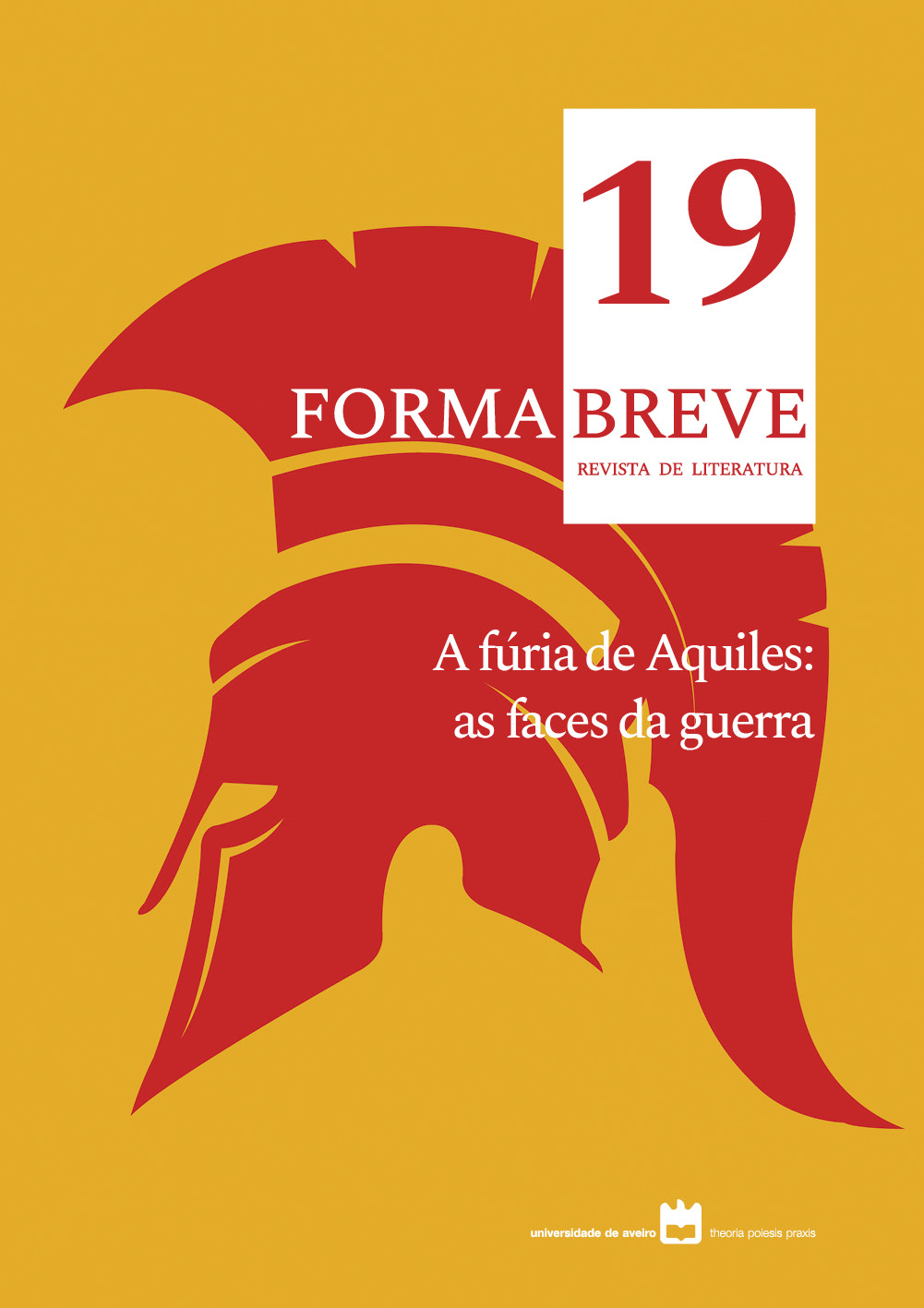Lisístrata ou de cando as mulleres reviraron, un híbrido aristofánico contra la guerra
Abstract
The rewriting and reworking of the models of Greco-Latin Antiquity has been constant in contemporary Galician drama since the second half of the 20th century. Mythological, historical, comic or philosophical themes inspire an important part of the Galician dramas that are published and/or performed from the 1950s to the present day and can even be used by their playwrights to establish a dialogue with its actuality through the canonical paradigm of the classical tradition. Lisístrata ou de cando as mulleres reviraron (1997) by Eduardo Alonso and Manuel Guede Oliva is a clear example, a new version that pairs two works by the comic poet Aristophanes, Lysistrata (411 BC) and Assemblywomen (392 BC), and uses the reinterpretation of both classic texts to explore on stage the alternatives to the established power, the anti-war and pacifist discourse or the role that women must assume in resolving the social and political problems that concern them. These lines will attempt to offer a critical and analytical reading of this Galician reworking of the plays by Aristophanes, paying close attention to its context of production and its repercussion in its theatrical system, as well as the existing intertextuality relationships between the new piece of Alonso and Guede and their reference hypotexts, the introduction of innovative elements both in the formal aspects and in the plot plane or the new vindictive and emancipatory readings that the Galician playwrights contribute to the utopian subversions of the Greek playwright.
References
Aristófanes (1987). Las avispas. La paz. Las aves. Lisístrata (edición de Francisco Rodríguez Adrados). Madrid, España: Ediciones Cátedra.
Aristófanes (1991): Los Acarnienses. Los Caballeros. Las Tesmoforias. La Asamblea de las Mujeres (edición de Francisco Rodríguez Adrados). Madrid, España: Ediciones Cátedra.
Alonso, E. (1997). Apuntes dunha dramaturxia urxente para unha proposta revirada. En Alonso, E. & Guede, M., Lisístrata ou de cando as mulleres reviraron (pp. 29-48). Santiago de Compostela, España: IGAEM.
Alonso, E. & Guede, M. (1997). Lisístrata ou de cando as mulleres reviraron. Santiago de Compostela, España: IGAEM.
Amado Rodríguez, M.T. (2001). Literatura greco-latina y literatura gallega: algunas calas. Cuadernos de literatura griega y latina, 3, 61-125.
Carvalho Calero, R. (1981). A fabula palliata na literatura galega. In Díaz y Díaz, M.C. (ed.), Primera reunión gallega de Estudios Clásicos (Santiago-Pontevedra, 2-4 de julio 1979): Ponencias y comunicaciones (pp. 396-401). Santiago de Compostela, España: Universidad, Secretariado de Publicaciones.
Fernández Delgado, J.A. (1996). La tradición griega en el teatro gallego. Estudios Clásicos, 109, 59-89.
Finnegan, R. (1995). Women in Aristophanes. Amsterdam, Países Bajos: Hakkert.
García Novo, E. (1991). Mujeres al poder: una lectura de Lisístrata. Cuadernos de Filología Clásica (Estudios griegos e indoeuropeos), 1, 43-55.
Guede Oliva, M. (1997). Lisístrata ou de cando as mulleres reviraron: unha cuestión de soberanías. In Alonso, E. & Guede, M., Lisístrata ou de cando as mulleres reviraron (pp. 25-28). Santiago de Compostela, España: IGAEM.
Iglesias Zoido, J.C. (2010). Los múltiples rostros de Lisístrata. Tradición e influencia de la Lisístrata de Aristófanes. Cuadernos de Filología Clásica (Estudios griegos e indoeuropeos), 20, 95-114.
López Férez, J.A. (2008). Aristófanes, Lisístrata. In Hualde, P. & Sanz, M. (eds.), La literatura griega y su tradición (pp. 145-184). Madrid, España: Akal.
López Silva, X.A. (1997): Democracia ateniense, comedia grega e Aristófanes. In Alonso, E. & Guede, M., Lisístrata ou de cando as mulleres reviraron (pp. 73-125). Santiago de Compostela, España: IGAEM.
López Suárez, M. & Abuín González, A. (2007). O Centro Dramático Galego. In Vieites, M.F., Cento vinte e cinco anos de teatro en galego, no aniversario da estrea de ‘A fonte do xuramento’ (pp. 171-185). Vigo, España: Galaxia.
Nelson, S.A. (2016). Aristophanes and his tragic muse: comedy, tragedy and the polis in 5th century Athens. Leiden-Boston, Países Bajos-EUA: Brill.
Pedreira Sanjurjo, I. (2019). Recepción, interpretación e adaptación dos clásicos grecolatinos na literatura dramática galega (Tesis doctoral, Universidade de Santiago de Compostela). URL: https://minerva.usc.es/xmlui/handle/10347/20667.
Pedreira Sanjurjo, I. (2022). Reelaboraciones y reescrituras de los clásicos grecolatinos en la literatrura dramática gallega: hacia una propuesta de reconfiguración del canon teatral. Theory Now. Journal of Literature, Critique and Thought, (5)1, 236-255. URL: https://revistaseug.ugr.es/index.php/TNJ/article/view/16568.
Ragué Arias, M.J. (1991). Los personajes y temas de la tragedia griega en el teatro gallego contemporáneo. Sada (A Coruña), España: Ediciós do Castro.
Rothwell, K. S. (1990). Politics and persuasion in Aristophane’s Ecclesiazusae. Leiden, Países Bajos: E.J. Brill.
Silk, M.S. (2000). Aristophanes and the definition of comedy. New York, EUA: Oxford University Press.
Sommerstein, A.H. (2007a). Ecclesiazusae. Aristophanes. Oxford, Reino Unido: Oxbow.
Sommerstein, A.H. (2007b). Lysistrata. Aristophanes. Oxford, Reino Unido: Oxbow.
Copyright (c) 2023 Iria Pedreira Sanjurjo

This work is licensed under a Creative Commons Attribution 4.0 International License.


